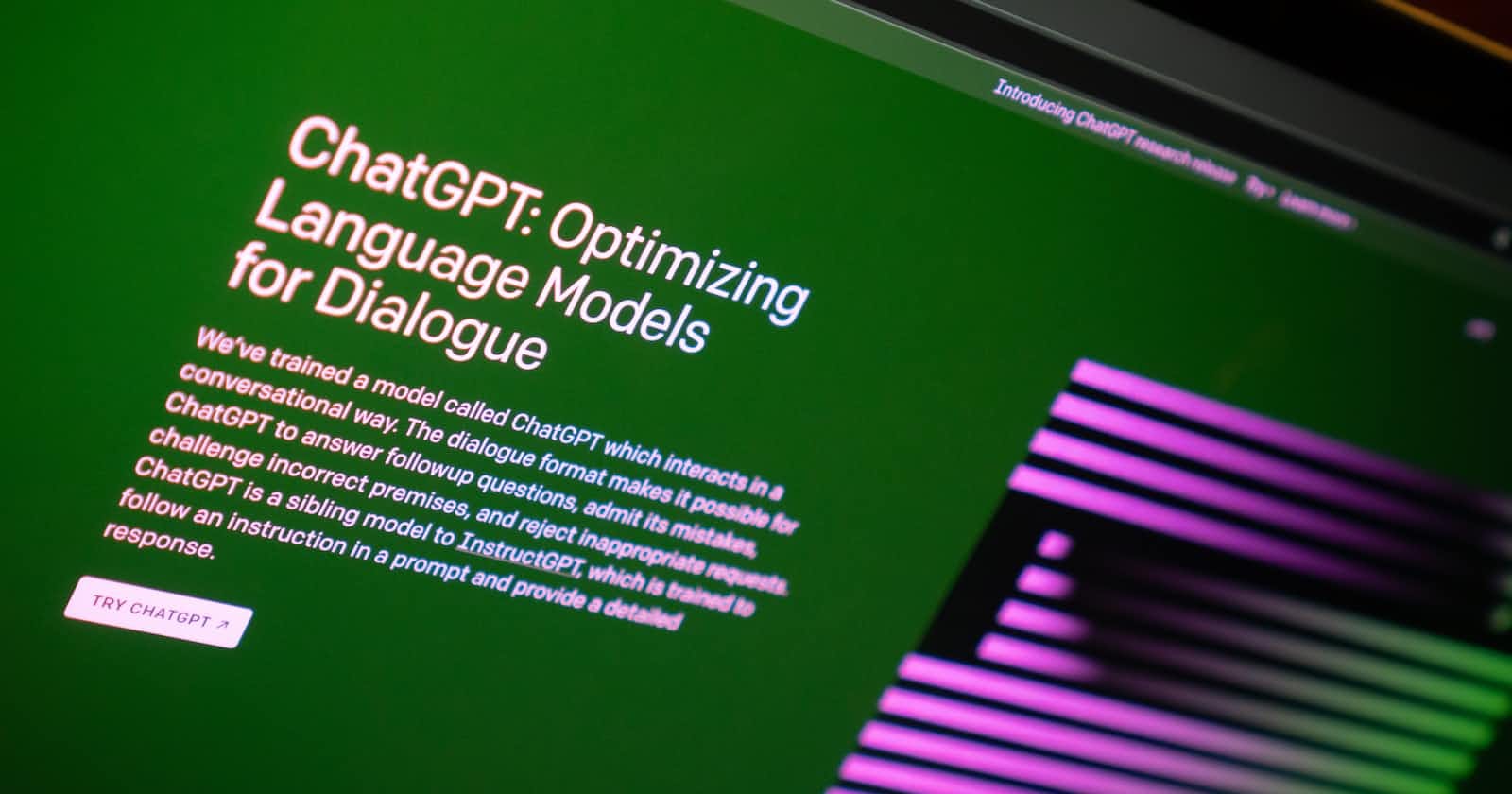Everyone is buzzing about ChatGPT, and I must admit, it has captured my interest as well. It's not just tech enthusiasts; even mainstream media is giving it a lot of attention. Elon Musk has expressed concerns about it, and governments are also discussing ChatGPT. The opinions surrounding it are varied, with both positive and negative viewpoints. Personally, I have only just begun experimenting with it, but like any tool, its effectiveness depends on how you use it. In this initial exploration, I wanted to share my thoughts on ChatGPT, and I plan to delve into more in-depth articles on its use cases.
So, what exactly is ChatGPT? According to Wikipedia, ChatGPT is an AI chatbot developed by OpenAI, which was released in November 2022. It is built upon OpenAI's GPT-3.5 and GPT-4 large language models (LLMs) and has undergone fine-tuning using supervised and reinforcement learning techniques, which are approaches to transfer learning. https://en.wikipedia.org/wiki/ChatGPT
When I asked ChatGPT what it is, it described itself as an AI language model developed by OpenAI. The acronym stands for "Chat Generative Pre-trained Transformer." It is designed to generate responses similar to those of a human in a conversational manner. ChatGPT is based on the GPT (Generative Pre-trained Transformer) architecture, specifically GPT-3.5, which was one of the most advanced versions available as of my knowledge cutoff in September 2021.
It's important to note that ChatGPT has its limitations. It can only provide information based on the datasets it has been trained on, and its knowledge is not real-time aware. Therefore, it's advisable to verify information from other sources. Additionally, ChatGPT may exhibit certain biases, as the data it was trained on was selected by someone. It also adheres to ethical and legal guidelines. If you have further questions about this, you can inquire with ChatGPT directly or visit the OpenAI website for more information.
So, what can you do with ChatGPT? Well, I've had a few lighthearted conversations, engaged in political debates, asked some technical questions, and even posed a dubious query that it couldn't respond to. However, once I finished experimenting, I started thinking about the practical applications of ChatGPT.
One thing I've heard is that ChatGPT is good at writing essays, so I decided to try using it to edit my blog articles. I started with one of my already published blogs, and I was pleasantly surprised by the result. The content became better structured and more fleshed out. There are a few ways you can utilize ChatGPT for writing. You can give it a subject and ask it to write an article from scratch, or you can write the article yourself and then have ChatGPT edit it. Additionally, you can ask it to generate content based on your notes. You have the flexibility to set different parameters, such as the desired length or the target audience's characteristics, like age or technical ability. The more information you provide, the more customized the output becomes. As a side note, if you use ChatGPT for writing, it's a good idea to inform readers if it's being used as more than just an editing tool. For example, I will be using it on this article.
Another initial idea I had was to seek assistance from ChatGPT in my game development endeavors. I decided to ask ChatGPT to help me create a Game Design Document (GDD). Although I had a basic idea of how to create one, I thought ChatGPT could make the process more professional and save me time. I outlined my concept, and to my surprise, ChatGPT quickly generated an awesome GDD. However, it turned out that the document didn't align with the game I had in mind. So, I reworked the concept, adding more detail and specificity. This time, I received a result that I could actually use. While it's not perfect, it will assist me in creating my vision in a more progressive and organized way.
As I continued to explore the possibilities, I started compiling a list of different ways I could use ChatGPT, such as learning code or any other subject. I also looked online to discover ideas that others have come up with. Some interesting use cases I found include utilizing ChatGPT as a marketing tool, optimizing SEO, planning lessons, conducting research, and even exploring stock trading, among others. The potential applications seem quite diverse and extensive.
In conclusion, I believe that ChatGPT has great potential as a useful tool for various applications, as well as a source of entertainment for users. I am excited to see how others will use it and the innovative ideas they will come up with. However, I acknowledge that concerns about potential harm and ethical considerations surrounding ChatGPT and AI in general are valid and need to be addressed. While it is true that any technology can be used for both good and bad purposes, it is important to approach the development and use of AI with caution and consideration for the potential impact on society. Overall, I believe that ChatGPT is a valuable resource worth exploring further, while also recognizing the need for ongoing discussion and evaluation of its potential impact.

